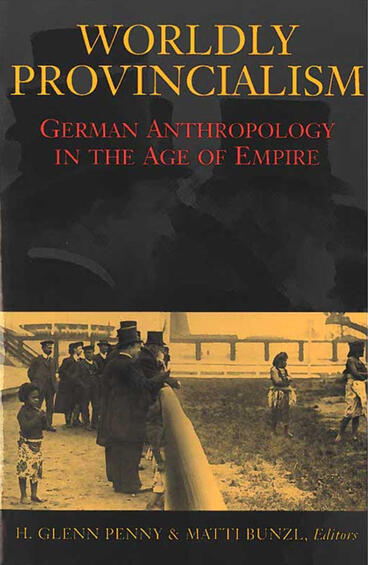Worldly Provincialism
German Anthropology in the Age of Empire
Illustrates the impact of imperialism on German scholars in the fields of anthropology and ethnology
Description
Worldly Provincialism introduces readers to the intellectual history that drove the emergence of German anthropology. Drawing on the most recent work on the history of the discipline, the contributors rethink the historical and cultural connections between German anthropology, colonialism, and race. By showing that German intellectual traditions differed markedly from those of Western Europe, they challenge the prevalent assumption that Europeans abroad shared a common cultural code and behaved similarly toward non-Europeans. The eloquent and well-informed essays in this volume demonstrate that early German anthropology was fueled by more than a simple colonialist drive. Rather, a wide range of intellectual history shaped the Germans' rich and multifarious interest in the cultures, religions, physiognomy, physiology, and history of non-Europeans, and gave rise to their desire to connect with the wider world.
Furthermore, this volume calls for a more nuanced understanding of Germany's standing in postcolonial studies. In contrast to the prevailing view of German imperialism as a direct precursor to Nazi atrocities, this volume proposes a key insight that goes to the heart of German historiography: There is no clear trajectory to be drawn from the complex ideologies of imperial anthropology to the race science embraced by the Nazis. Instead of relying on a nineteenth-century explanation for twentieth-century crimes, this volume ultimately illuminates German ethnology and anthropology as local phenomena, best approached in terms of their own worldly provincialism.
H. Glenn Penny is Assistant Professor of History at the University of Missouri, Kansas City.
Matti Bunzl Assistant Professor of Anthropology and History at the University of Illinois at Urbana-Champaign.
H. Glenn Penny is Assistant Professor of History at the University of Missouri, Kansas City.
Matti Bunzl is Assistant Professor of Anthropology and History at the University of Illinois at Urbana-Champaign.
Reviews
"By examining the German anthropological tradition, this volume brings back into focus an important national tradition in the construction of modern ethnology, and it does so in a way that illuminates the larger themes of academic professionalism, colonialism, the construction of race, and the idea of empire."
- Helmut Smith, Vanderbilt University
—Helmut Smith, Vanderbilt University
"No other book covers the history of German anthropology, colonialism, travel, and exoticism so well—both coherently and controversially."
- Lora Wildenthal, Texas A & M University
—Lora Wildenthal, Texas A & M University
"This is an admirable collection, in part because of the uniformly high quality of the contributions, the success of the editors in making the connections between the individual pieces clear, and the fact that it announces the coming of age of a field of study. It also shows that scholars doing modern German cultural history have important things to say about topics of great contemporary significance."
- Woodruff D. Smith, Univ of Massachusetts, Boston
—Central European History
"Thought-provoking and well-written, the essays examine the influential roles of journals, museum directors, collectors, scholars, and field anthropologists in the colonies."
- E. L. Turk, emerita, Indiana University East
—Choice
"In the past several years we have witnessed the beginnings of a revolution in scholarship on German anthropology of the nineteenth and early twentieth centuries. This revolution is due in no small part to the previous work of the editors of and contributors to Worldly Provincialism. The present anthology will serve as a valuable resource for classroom debates and as a battle plan for those slightly behind in appreciating the recent call to arms."
- Thomas O. Haakenson, Univ of Minnesota
—German Studies Review
". . . succeeds in formulating for the first time numerous areas of inquiry that will be essential for future scholars in this area. . . . The significance of German anthropology over the entire period of its development, from its beginnings in Renaissance humanism to its decline under German fascism, cannot be overestimated. Without the theoretical contributions of German anthropologists, the modern cultural sciences would have to do without a great portion of their analytical vocabulary. This collective volume takes a first step toward a comprehensive history of the discipline. . . ."
- Hartmut Krech, Bremen
—H-Net Reviews in the Humanities & Social Sciences

